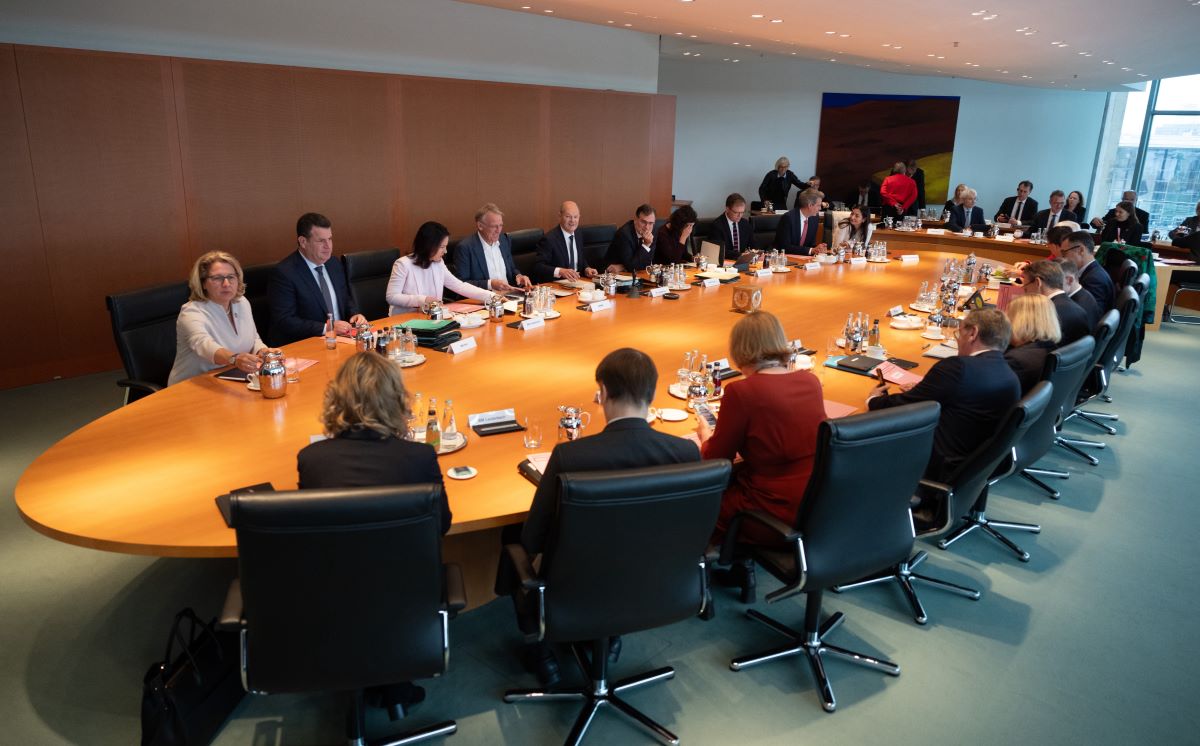With snap elections now set for February, Germany will likely have a new government in a few months.
But for now, the Social Democrats (SPD) and Greens are in a minority government after the Free Democrats (FDP) pulled out.
This slimmed-down coalition has just a few months to try and follow through on a number of projects it had been working on - although it will need support from other parties in the Bundestag.
Here are the major projects that could pass, or be left behind, as Germany's government is reconfigured.
READ ALSO: What happens next as Germany heads for snap elections?
Taxes and Kindergeld
The SPD, Greens and FDP coalition, nicknamed the 'traffic light' government, had already presented a tax plan for next year, which would increase the basic allowance and raise Kindergeld, Germany's child allowance.
Overall this was expected to lower taxes (very slightly) for middle income earners, and raise taxes a bit for high income earners.
These basic tax proposals represented one point of agreement between all the coalition parties and the opposition Christian Democrats (CDU). So it appears relatively likely that the 2025 tax plan will ultimately go forward with these changes included.
But there is one tax point that may not.
Former Finance Minister Christian Lindner (FDP) had wanted to compensate for so-called “cold progression” which is the term for when tax rates increase faster than wages rise. But CDU/CSU leaders have signalled a reluctance to support this motion before the next election.
So this part of the tax reform may be delayed until after February, though it could be applied retroactively to 2024 if it is agreed.
READ ALSO: 'Unfair distribution' - Why Germany's tax system needs to change
Pension reform
The traffic light’s highly contested pension package is not likely to pass.
The pension package, introduced as early as spring of this year has already become a flashpoint of contention between the coalition parties and, in retrospect, arguably foreshadowed the government collapse.
In short, the SPD and the Greens wanted to maintain the current ratio of pensions to wages (at 48 percent) until 2039, which would amount to additional government expenditure. The FDP, on the other hand, was more concerned with the government’s balance sheet and thought that measures needed to be taken to reduce costs: they proposed restricting early retirement, and investing federal funds in the stock market to build a fund, among other policies.
Meanwhile, the CDU has its own pension plan.
As a result, the current pension package will likely be left behind and Germany’s next government will need to take up the issue again.

Railway renovations
With billions invested, and construction started on major routes, the previous government’s plans to upgrade Germany’s ailing rail network are well underway.
Major constructions will continue through to 2030 at least, with most of Germany’s high-trafficked railways modernised by then.
But financing for all of the construction has not yet been fully secured. The railway workers' union (EVG) has voiced fears that the project could be derailed by the change in government.
Transport Minister Volker Wissing, however, has confirmed he intends to push ahead with the project until the new elections. Wissing, who was a member of the FDP, decided to leave the liberal party so that he could remain in his post until the coming elections.
READ ALSO: Why public transport operators across Germany are cutting services
What about the Deutschlandticket?
There may not be immediate consequences for the Deutschlandticket, which is currently set to remain through next year at the raised price of €58.
But maintaining funding for the ticket also hinges on a Bundestag decision on the so-called Regionalisation Act, which is why Wissing and state transport ministers have warned that the ticket price could be impacted by the government transition.
If Germany’s next government decided not to bring funding forward for the Deutschlandticket, its price would presumably be raised again in the near future.
The Digital Pact for Schools
The German Teachers’ Association assumes that the Digital Pact for Schools has ended, at least temporarily, along with the traffic light.
The pact represents Germany’s primary effort to modernise curriculums and fund new infrastructure and hardware for digital learning. The first digital pact expired earlier this year, after roughly €5 billion had been spent largely on digital tools for classrooms.
At the end of August, Germany’s Minister of Education and Research announced that a further €2.5 billion would be available for a Digital Pact 2.0.
But without funding for the pact secured, it looks like the second iteration of the pact will need to be formally approved by the next government, which would presumably take quite a bit of time.

The Federal Constitutional Court
One item that might move ahead even before the next government takes power is an effort to strengthen Germany’s constitutional court.
Months ago, members of the traffic light along with the CDU/CSU had agreed on a number of measures to anchor rules that affect the court more strongly in Basic Law. These measures include introducing 12-year terms for judges, and determining 16 federal judges and two senates, among others.
These measures come as a response to the growing power of populist and far-right parties in Germany, and are generally supported across the board by Germany’s mainstream parties.
Adopting the EU’s Common European Asylum System
Another issue that could see more immediate agreement is the adoption of the Common European Asylum System.
The common asylum system comes as a new EU rule, and according to the EU process Germany has two years to implement it.
Both the traffic light and the Union have shown an interest in pushing for stricter asylum rules, so the measure appears to be one that should be easy to approve.

Comments